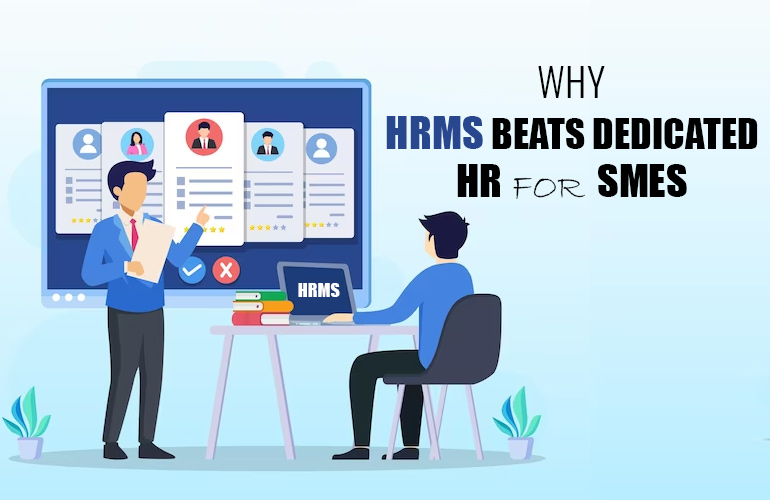
Why Choose HRMS for Small Business Over HR Staff
Small businesses often need help managing their human resources in today’s fast-paced business landscape. The choice between hiring dedicated HR staff and adopting an easy-to-use HRMS (Human Resource Management System) can be challenging. However, as we delve into the intricacies of this decision, it becomes clear that choosing an HRMS for small business can offer numerous advantages to small businesses, including increased efficiency, cost-effectiveness, and streamlined HR processes.
Understanding the HR Challenge for Small Businesses
Small business owners wear multiple hats, and HR responsibilities can be a significant burden. With a limited number of employees, the need for a dedicated HR professional may only sometimes be apparent. However, HR tasks are essential for smooth business operations, ensuring that employees are managed effectively, payroll is handled accurately, and maintaining compliance. This is where the dilemma begins.
The Downsides of Traditional HR Staffing
Hiring a full-time HR professional for a small business can be costly. Additionally, many traditional HR tasks can be time-consuming and labour-intensive. These include processing payroll, maintaining employee records, tracking leaves and attendance, and managing benefits. A dedicated HR staff member might be overqualified for such tasks or have idle time, resulting in an inefficient use of resources.
The HRMS Solution
HRMS, often designed with small businesses in mind, provides an elegant solution to this problem. These systems are user-friendly and tailored to meet the unique needs of smaller organizations. Here are the key advantages of choosing HRMS over HR staff:
- Cost-Effective: Implementing HRMS is generally more cost-effective than hiring dedicated HR staff. Small businesses can save on salary, benefits, and office space costs.
- Efficiency: HRMS automates many HR tasks, from payroll processing to leave management. This reduces the administrative burden on business owners and allows them to focus on core business activities.
- Accuracy: HRMS systems are designed to minimize errors, ensuring accurate payroll and compliance. This accuracy can prevent costly mistakes that might occur with manual HR processes.
- Scalability: As a small business grows, HRMS can scale. The system can adapt to changing HR needs without hiring additional staff.
- 24/7 Access: With HRMS, business owners can access HR data and reports anytime, providing greater control and flexibility.
- Compliance: HRMS solutions often include features that help businesses comply with labour laws and regulations.
Implementing HRMS in Small Businesses
The process of adopting HRMS is straightforward. It typically involves:
- Selection: Choosing the right HRMS system that suits the business’s needs.
- Integration: Integrating the system with existing processes and software.
- Training: Providing employees with the necessary training on using the system effectively.
- Support: Ensuring ongoing support and assistance from the HRMS provider.
The Smart Choice: HRMS for Small Businesses
Small business owners need to make savvy decisions in a world where efficiency and cost-effectiveness are paramount. Opting for an HRMS for small Business over dedicated HR staff is often the smart choice. It empowers businesses to manage HR processes effectively while keeping costs under control. This choice not only streamlines HR functions but also allows business owners to focus on what they do best – growing their enterprise. So, for small businesses, the path to efficient HR management is clear: choose HRMS and unlock your business’s full potential.


